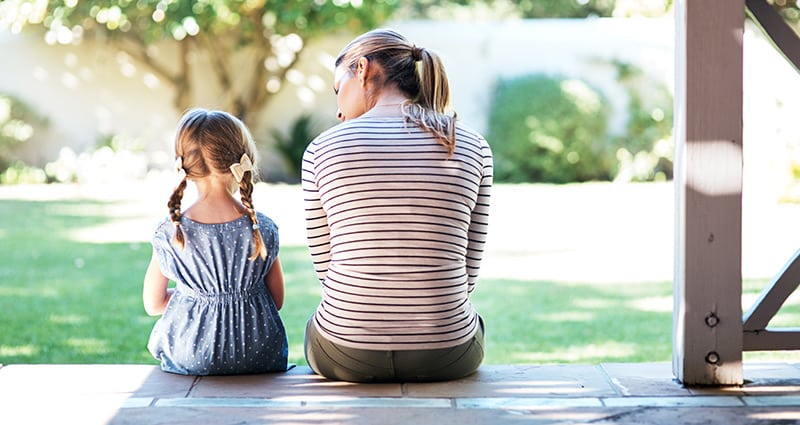During and after a tragedy, our thoughts as parents turn to protecting and helping our own children process and cope with the news.
At ParentingU we’re here to support parents on their journey, including when the road is rough. Here are some tips to help support you and your children in the face of tragedy in the news. Parents, remember to be gentle with yourself too.
Talk and Listen
Although no one has the right answers and there is no perfect thing to say, keep the lines of communication open. Ask your children what they know or have heard and talk about it even if they don’t bring it up.
Based on their age or maturity fill them in on the facts so they hear it from you and can ask questions. It’s OK that you don’t have all the answers, but you can clear up any misinterpretations.
One question many children may have is, “Who will take care of me?” An appropriate response could be, “I’m sad about the news, and I’m worried. I love you. I’m here to take care of you.”
Let children know it’s OK to feel scared, sad or even angry. When we accept feelings as they come, they are much easier to manage.
Avoid Scary Images
Limit children’s exposure to media, especially any graphic or violent images. Even audio news reports can stir up little minds and cause fear and anxiety. Young children especially should be protected from scenes of crisis when possible.
Focus on the Helpers
This advice, attributed to Mr. Rogers, is appropriate for children and can help redirect their attention from the scarier parts of the news. It can also be a way to encourage nurturing and helping scenarios, redirecting from any violent or angry play while still working through their emotions about the news.
Encourage kids to express their feelings, through play, drawing or writing. Physical activity is also a great outlet for any frustration and is always important to regulate emotions.
Provide Extra Comfort
Physically holding our children close to us is an automatic response to tragedy. Providing extra hugs, snuggles and time together can make hard and scary news easier to get through together. Physical comfort provides inner security, and closeness is important for parents too.
Stick to Routines
Foster a sense of normalcy by sticking to your family’s typical routines for meals, homework and bedtime. Familiar patterns of life help kids and grown-ups cope. Make sure you’re all getting enough sleep, eating well and staying active.
Take Action
If you find ways to help victims or their families, whether sending money or writing letters to those in power, let your children know. Having steps to take can help kids feel empowered.
Your child’s pediatrician is the best place to start for additional support. Get connected with one of our exceptional providers:
- Find a pediatric provider in Acadiana.
- Find a pediatric provider in Bogalusa.




